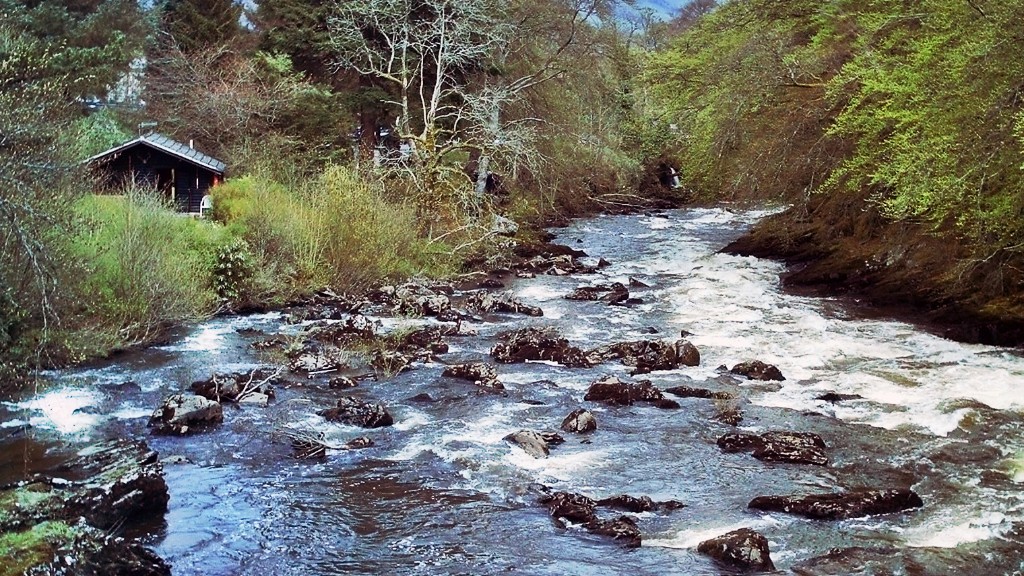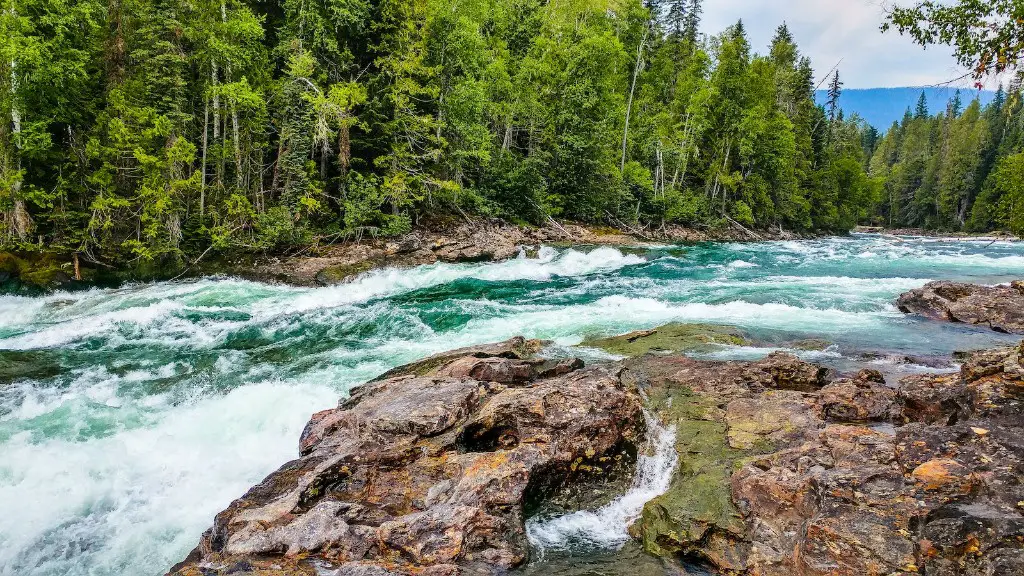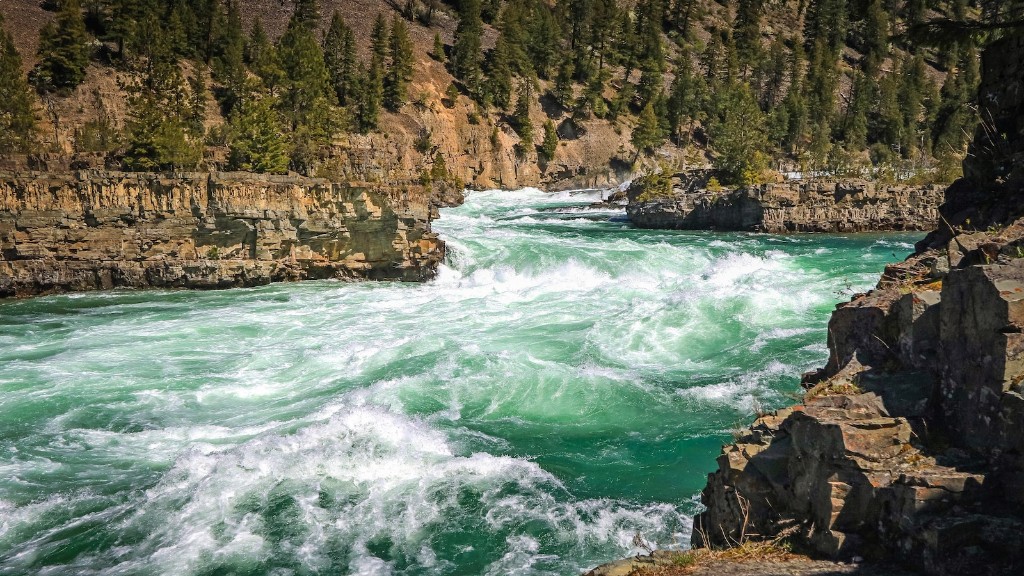Heavy rains can wreak havoc on the Mississippi River, leading to flooding, destruction of property and even loss of life. The flooding can arise due to a combination of factors, but excessive rainfall can be one of the biggest causes.
The possibility of flooding depends on the amount of rain, the location it falls, and the terrain of the riverbanks. For example, if the riverbanks are steep, the water from a heavy rainfall won’t have as much space to spread out and will cause more flooding.
It is also necessary to consider the river levels. If the Mississippi River is currently high, heavy rains can exacerbate the situation, leading to more flooding and destruction. Similarly, if the Mississippi River is already low, heavy rains can raise the water levels to dangerous heights.
The consequences of rainfall on the Mississippi River can be devastating. Flooded homes and businesses can suffer extensive property damage, ruined crops can lead to economic hardship, disrupted navigation can hamper trade, and rising water can endanger the lives of residents near its banks.
Scientists and experts believe that the increasing intensity and frequency of rainfall due to climate change will likely lead to more flooding related problems on the Mississippi River in the future. Therefore, it is important to take preventive measures, such as creating levees, controlling drainage systems, and elevating roads and buildings, to help limit the destruction caused by flooding.
With the increase of population in the region, it is important to ensure that the inhabitants are prepared for floods. This can involve installing emergency alert systems, educating people about the risks of flooding, and providing advice on suitable emergency plans.
The Mississippi River’s water levels can have a drastic impact on communities living close to it, so it’s important for us to be aware of the risks associated with heavy rains and put measures in place to protect ourselves from possible harm.
Economic Impact of Flood on Mississippi
Heavy rains along the Mississippi River can cause significant damage to homes and businesses in the region, but they can also lead to significant economic losses. This can arise due to a disruption of transport networks and trade, destruction of crops, and a decrease in tourism, all of which can have a massive impact on local economies.
Furthermore, if businesses are repeatedly affected by flooding, it could lead to a decline in investment in the area, resulting in fewer jobs and opportunities. This can have a long-term effect on the region and can take years for an economy to recover.
Therefore, it is important for governments to take preventive measures to help mitigate the damage and losses caused by flooding, such as building flood barriers, improving riverbank management, and regulating land-use. Additionally, it is important to provide financial compensation to businesses and individuals affected by the flooding.
As heavy rains can create significant economic, as well as physical, damage, proper preparation and planning is essential to limit the potential harm that flooding can cause.
Animal and Wildlife Impact of Flooding Mississippi River
Heavy rains along the Mississippi River can also have a severe effect on animals and wildlife in the area. As flooding can be unpredictable, plans to evacuate animals can be difficult to implement, resulting in animals being left in flood prone areas and exposed to danger.
In addition, the flooding can wash away habitat and destroy food sources, forcing animals to migrate to seek refuge or starve. This can put a strain on local species and can put some species at risk of extinction. It can also disrupt food chains, leading to unexpected consequences for the local environment.
The destruction of vegetation and habitat can also have serious ramifications for the region. For example, trees play an important role in preventing soil erosion and water contamination, both of which can have catastrophic consequences. Additionally, damaging vegetation can leave soil more vulnerable to heavy rains.
Therefore, it is important for us to take steps to safeguard animal and wildlife populations, such as establishing wildlife refuges away from flood prone areas, restoring vegetation and habitat, and providing compensation to farmers for lost crops.
Flood Prediction and Mitigation
In order to minimize the damage caused by flooding, it is important to be able to anticipate and predict potential floods. This can involve monitoring rainfall, measuring water levels, and making use of modeling and simulation techniques.
Additionally, it is important to have a plan in place for mitigation, in case a flood does occur. This can involve relocating people to safe areas, establishing evacuation plans, and installing systems to alert people of an impending flood.
Government authorities can also take preemptive measures, such as enforcing building regulations and conducting dredging operations. This can help to prevent some of the destruction that flooding can cause, as well as reduce the vulnerability of the region to potential floods.
It is clear that heavy rains can be hazardous for the Mississippi River and can have far-reaching consequences. Therefore, it is important to take steps to anticipate and prepare for potential floods, in order to limit the destruction and loss of life that can arise.
Adapting to Climate Change and its Impact on Mississippi River
The increasing intensity and frequency of heavy rains due to climate change can have a significant effect on the Mississippi River. Therefore, it is important for us to adapt to climate change and prepare for its effects.
This can involve using climate-resilient strategies, such as integrating green infrastructure into urban planning to reduce the impact of flooding, and creating restorative habitats to boost ecosystems’ resilience.
In addition, it is important to raise awareness of the risks associated with climate change, as well as educate people on how they can be more prepared. This can involve installing emergency systems, conducting emergency drills, and providing support to communities living in risk areas, such as the Mississippi River floodplain.
Furthermore, governments, businesses, and individuals all have a role to play in fighting climate change. This can involve promoting sustainable energy sources, protecting green spaces, and supporting environmental initiatives.
We must act now to ensure that the damage caused by future floods on the Mississippi River is minimized. Taking the necessary steps to address climate change, such as raising awareness, educating people, and investing in green infrastructure, can help to ensure the safety of the region.
Role of Mississippi River to Locals and the Nation
The Mississippi River is an integral part of life for many people living in the region, and its importance extends far beyond its banks. Historically, the river has been used for transportation and trade, and has provided opportunities for recreation and tourism.
Furthermore, fishing is a significant activity on the river, and provides a valuable source of income to many locals. In addition, the river has provided a rich source of food and resources, as well as a habitat for numerous species.
Additionally, the Mississippi River provides the nation with an invaluable water source, which can be used for irrigation, power, and drinking water. The river is also an important part of the cultural heritage of the region and has been a source of inspiration for many generations.
Therefore, it is important for us to be aware of the potential harm that heavy rains can cause, and to protect the river from destruction and pollution. We must all have a part to play in looking after the Mississippi River to ensure its continued existence for future generations.
Clean Up of Mississippi River
Heavy rains can result in floods that lead to the introduction of pollutants into the Mississippi River, such as toxic chemicals and sewage, which can be detrimental to the environment and to human health.
It is, therefore, important to take steps to clean up the river and reduce the pollution that is entering it. This can be done by installing treatment plants, properly disposing of waste, and conducting regular monitoring of the river water.
Cleaning up the Mississippi River can also be done through education and awareness, such as providing information on the dangers of pollution, outlining proper waste disposal methods, and introducing fines for illegal activities.
Furthermore, conducting research is essential to understand how to improve the quality of the river and find solutions to the pollution problem. This should involve assessing the sources of the pollution and identifying ways to reduce it.
The Mississippi River is an important source of life for many, so it is necessary to take measures to clean up the river, in order to protect the environment, the animals, and the people living in the area.





